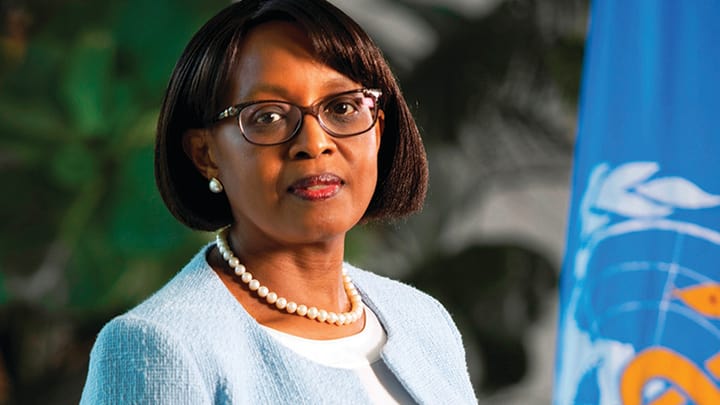Liberia recently celebrated World Patient Safety Day, emphasizing the crucial role that accurate and timely diagnoses play in safeguarding patient safety. Taking place annually on September 17, this day serves to raise awareness about the significance of people-centered care while striving to prevent patient harm. The World Health Organization (WHO) Regional Director for Africa, Dr. Matshidiso Moeti, underscored that patient safety is paramount within the WHO African Region, integral to efforts aimed at achieving Universal Health Coverage (UHC) and the Sustainable Development Goals (SDGs). Since its inception in 2019, World Patient Safety Day has highlighted specific themes, showcasing priority areas in patient safety.
Dr. Moeti referred to WHO resolution WHA72.6 and the Global Patient Safety Action Plan 2021–2030, which call for enhanced safety in diagnostic processes. She emphasized that the global action plan encourages countries to adopt strategies aimed at reducing diagnostic errors. These errors—often resulting from cognitive and systemic issues—can severely impede the recognition of significant patient signs and symptoms, impacting the interpretation and communication of test results. A diagnostic error, in this context, refers to the failure to arrive at a correct and timely understanding of a patient’s health issue, encompassing delayed, incorrect, or missed diagnoses along with ineffective communication of diagnoses to patients.
She highlighted the grave implications of diagnostic errors, revealing that these mistakes contribute to approximately 16% of preventable harm within healthcare systems. Dr. Moeti estimated that one in ten diagnoses is likely to be incorrect, and many adults are projected to encounter at least one diagnostic error in their lifetime. An urgent call was made for substantial improvements in the safety of diagnostic processes to mitigate these threats to patient well-being. Within the WHO Africa Region (AFRO), various countries have initiated and are executing National Quality Policies and Strategies (NQPS), which encompass patient safety action plans and other proactive safety measures such as Infection Prevention and Control (IPC) with the aim of enhancing healthcare safety.
Dr. Moeti reiterated WHO’s commitment to improving diagnostic safety through multifaceted interventions rooted in systemic analysis, human factors, and the active participation of patients, families, healthcare workers, and leaders. Strategies recommended include comprehensive patient history assessments, meticulous clinical examinations, improved access to diagnostic testing, and the implementation of methodologies for learning from diagnostic errors. The speech also underscored the significance of technology-driven solutions in bolstering diagnostic services. In May 2023, the WHO endorsed a landmark resolution on “Strengthening Diagnostics Capacity,” highlighting the essential role of diagnostics across all healthcare levels and advocating for governments to address prevailing deficiencies at the national level.
Practical initiatives to enhance diagnostic services are already underway. The WHO-AFRO has introduced the Stepwise Laboratory Improvement Process Towards Accreditation (SLIPTA) program, which aims to improve laboratory quality management systems (LQMS) and guide laboratories towards achieving ISO15189 accreditation. Additionally, an external quality assessment (EQA) program in microbiology was launched as a proficiency testing mechanism that evaluates laboratories’ accuracy and competence in delivering diagnostic services. This program assesses skills in basic bacteriological techniques as well as the detection of diseases prone to epidemics and the conduct of antibacterial susceptibility testing (AST).
Dr. Moeti urged member states to raise awareness regarding the impact of diagnostic errors on patient safety. She accentuated the fundamental necessity of attaining correct, timely, and safe diagnoses to enhance overall patient safety. The emphasis on diagnostic safety must be mirrored in patient safety policy and clinical practice across all healthcare levels, in alignment with the Global Patient Safety Action Plan 2021–2030. As highlighted in her address, this concerted focus is crucial in addressing the critical challenges posed by diagnostic errors, improving patient outcomes, and ultimately fostering a health system that prioritizes the safety and well-being of all patients.


